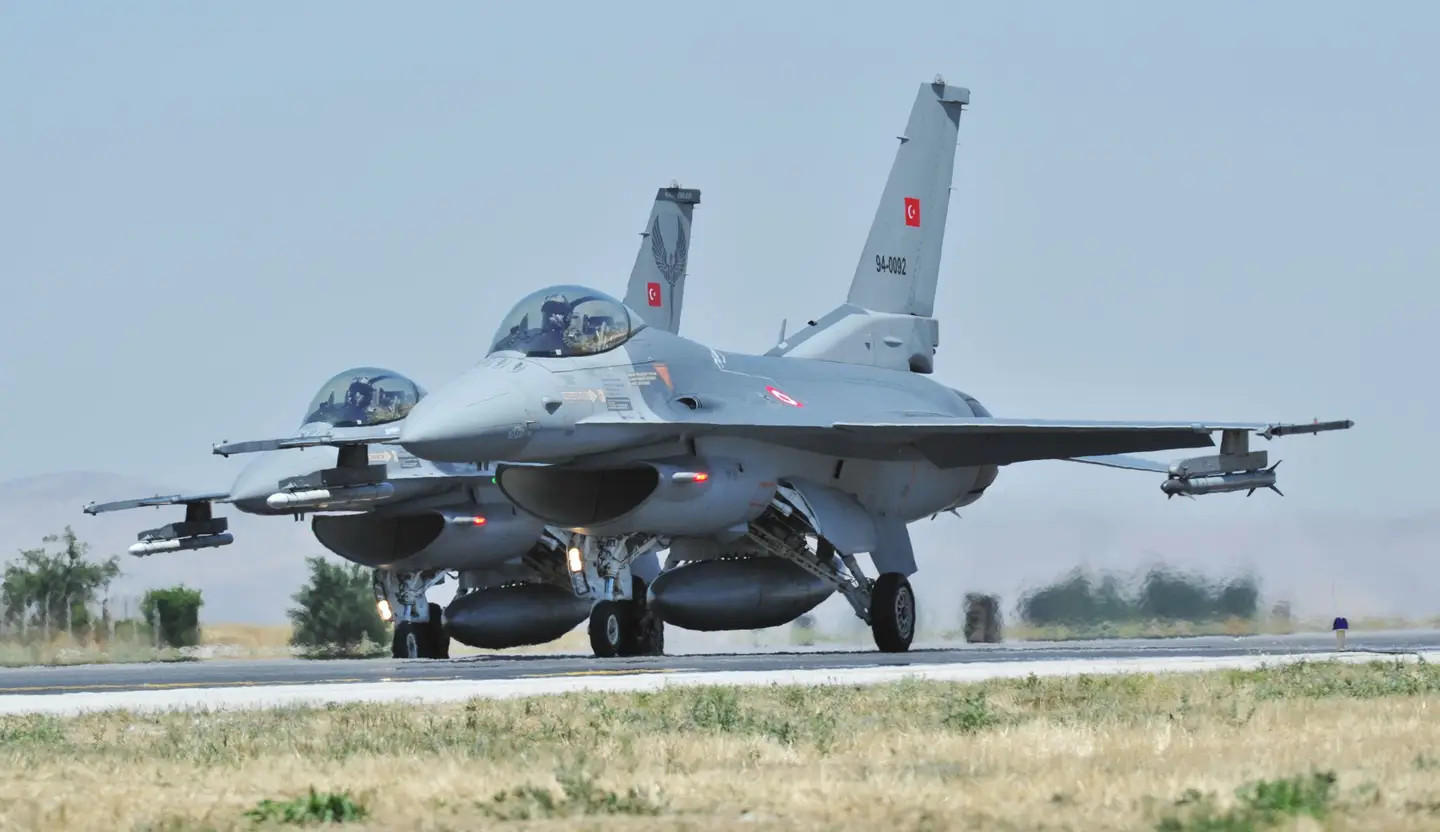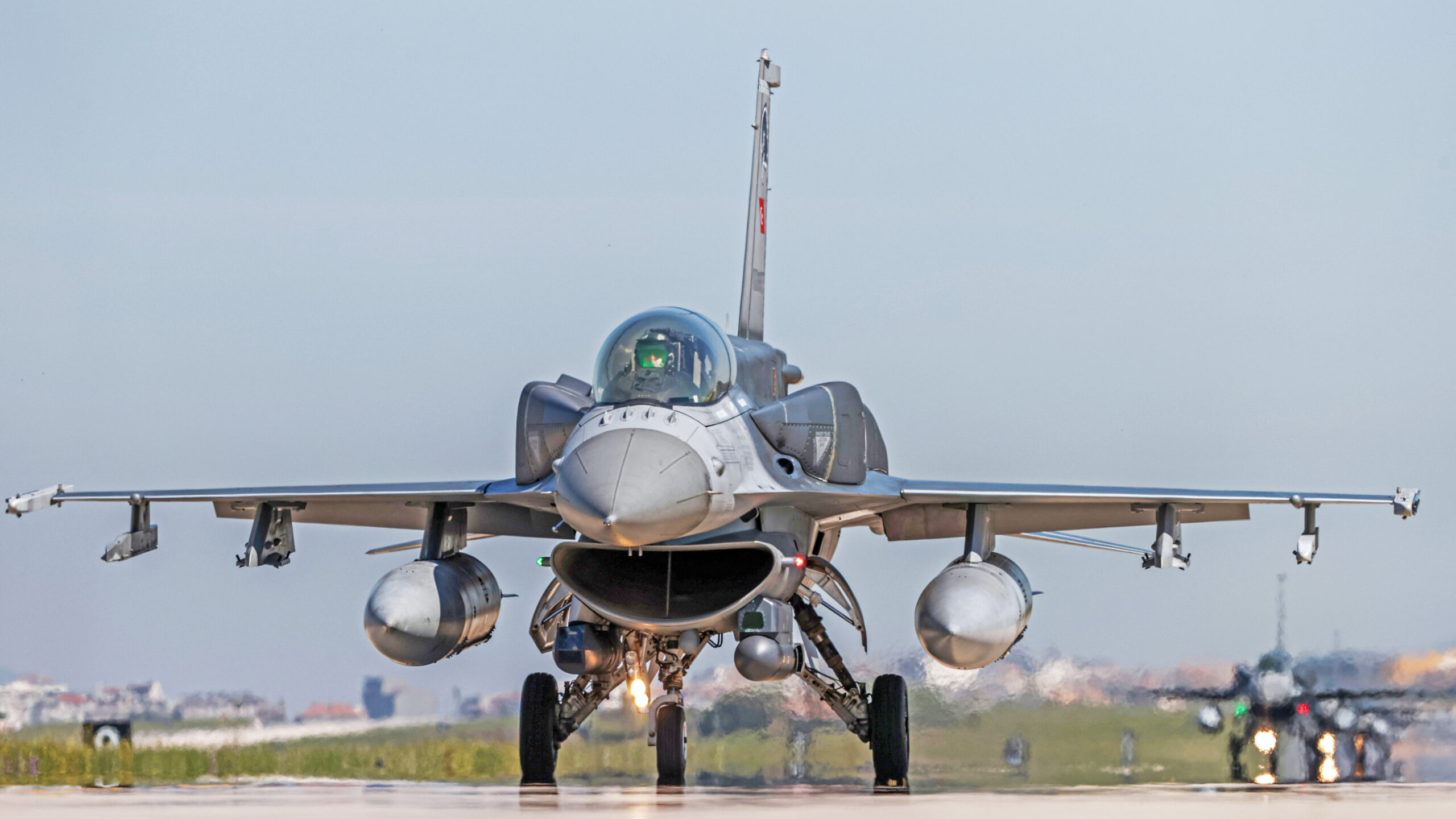Turkey looks set to receive the F-16 fighters that it’s long sought from the United States, as part of an apparent deal in which Ankara has finally conceded to Sweden’s entry into NATO. Turkey had requested a $20-billion deal for 40 new F-16s, as well as around 80 modernization kits for existing jets, since October 2021, but the deal had been held up by Congress amid worsening relations between Ankara and Washington.
Speaking today ahead of a summit of NATO leaders in the Lithuanian capital Vilnius, U.S. National Security Adviser Jake Sullivan confirmed today that the United States will seek to approve the Turkish F-16 deal, after consultation with Congress.

Sullivan added that U.S. President Joe Biden “had been clear that he supports the transfer.” According to Sullivan, the U.S. president “has placed no caveats on this [and] he intends to move forward with that transfer,” although it’s not clear when deliveries might take place, especially with a long backlog of F-16 orders at Lockheed’s Greenville, South Carolina, production facility.
Yesterday, the Pentagon confirmed that U.S. Secretary of Defense Lloyd Austin had discussed broader support for Turkish military modernization during a phone call with his Turkish counterpart Yasar Guler.
Formal approval of the deal would still require support from across Congress, but there are signs that this is now imminent.
Reuters reported yesterday that U.S. Senate Foreign Relations Committee Chairman Bob Menendez, a Democrat who had blocked the transfer, is now in talks with the Biden administration and that he could decide “in the next week,” suggesting he reversed his opposition to it.
At the same time, Menendez says he still has reservations about an F-16 deal with Turkey.
“If they (Biden administration) can find a way to ensure that Turkey’s aggression against its neighbors ceases, which there has been a lull the last several months, that’s great but there has to be a permanent reality,” Menendez said. He also called for efforts to “beef up Greece’s security” and obtain “assurances about future actions.”
As well as the issue of Turkish opposition to Swedish NATO membership and its relations with Greece and Russia, Ankara has faced criticism from U.S. lawmakers over human rights concerns, among others.
What’s less clear, at least at an official level, is the degree to which the latest U.S. decision has hinged upon Turkey switching its stance on Swedish accession to NATO. Before a new member can join the alliance, this has to be ratified by existing NATO states, of which Turkey is one.

However, there are signs that it’s no coincidence that today’s announcement comes just a day after Ankara signaled that it would approve Sweden joining the alliance. Ever since Sweden announced that it wanted to join NATO, in the wake of the full-scale Russian invasion of Ukraine, Turkish opposition had been the main barrier to this happening.
In particular, Ankara was unhappy with what it alleged was Sweden’s sympathetic stance on Kurdish militants, including members of the Kurdistan Workers Party (PKK), considered a terrorist organization by Turkey, the European Union (EU), and the United States.

A joint statement from Turkey and Sweden yesterday confirmed that Sweden had said it would not provide support to Kurdish groups in the future and that it would also support Turkish entry to the EU.
However, the idea that the U.S. F-16 deal was dependent on Turkish approval of Sweden’s entry to NATO has been rejected by the Biden administration and Turkish officials alike.
When asked yesterday about why Turkey had lifted its opposition to Swedish membership of NATO, Biden himself provided a somewhat cryptic answer. “What do you think?” he smiled.
Other diplomats and analysts certainly see that the two issues are linked.
In particular, there have been suggestions from some quarters that Turkish President Tayyip Erdogan used the issue of Sweden joining the alliance as a means of ensuring that the United States would sign off on the F-16 deal.
Writing in The Washington Post, Asli Aydintasbas, a foreign-policy analyst and fellow at the Brookings Institution, observed that “behind all the public bluster, Erdogan’s most important ask has long been clear: He needs the United States to sell him F-16s.”
Meanwhile, Gerard Araud, a former French ambassador to the United States, took to Twitter to state that “The Swedish blackmail paid.”
At this point, however, it seems that both Turkey and Sweden should end up getting what they want: more, and modernized F-16s, and NATO membership, respectively.
What’s much less clear is when new F-16s for Turkey might arrive, and when Sweden will formally enter NATO.
There’s no doubt, however, that the acquisition of new fighters has become an increasingly urgent issue for the Turkish Air Force.
Today, the combat fleet of the Turkish Air Force is dominated by the F-16, as we have discussed in the past.
The world’s third-largest F-16 operator, Turkey received a total of 270 aircraft delivered in successively more capable Block 30, Block 50, and Block 50+ configurations. Local industry has also played a major role in the Turkish F-16 program, with involvement from the outset, including local assembly of aircraft and production of center/aft fuselage sections and wings.

Turkey had once planned to replace a significant portion of its F-16 fleet with F-35A stealth fighters, again with heavy involvement in the program from local industry. However, Turkey’s decision to buy Russian-made S-400 air defense systems led to it being ejected from the Joint Strike Fighter program in 2019. This development led to Turkey seeking to buy additional F-16s, with discussions over another batch of F-16s reportedly taking place, but with no deal in sight — until now.
The situation has also contributed to Turkey launching more concerted efforts to upgrade its existing F-16 fleet locally. As we have discussed in the past, a structural improvement program was enacted to extend the service lives of some of the oldest F-16s in the Turkish inventory and there have also been expanding efforts to introduce locally produced weapons, too. Fearing the adverse effect of U.S. sanctions on its F-16s — another result of the S-400 purchase — Turkey also reportedly began stockpiling spare parts for these jets in 2019.
Local industry is meanwhile busy developing a range of crewed and uncrewed combat aircraft, including the TF-X next-generation fighter, the Anka-3 low-observable flying wing unmanned combat air vehicle (UCAV), and the fighter-like Bayraktar Kizilelma drone that is already in flight testing. While impressive, there remains a shorter-term need for a crewed fighter, at least until the TF-X becomes widely operational. While there are hopes the TF-X will begin to enter service in 2030, bearing in mind previous next-generation fighter programs, that could well end up being delayed significantly.
Clearly, then, Turkey still wants more F-16s, and the latest indications from Washington suggest that a related deal could be closer than at any any time since Turkey was sensationally kicked out of the Joint Strike Fighter program.
Contact the author: thomas@thedrive.com
